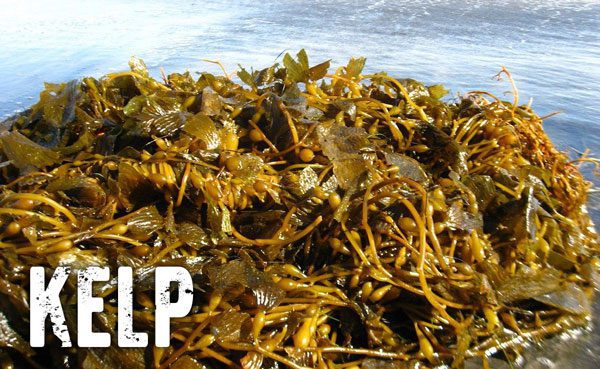Many growers are searching for nutrients that can give plants a certain edge. Is there something that can make them bigger, stronger and deliver higher yields? There are always new products and fertilizers on the market, but very few of them are original. The wheel is constantly being reinvented. If you want an edge in the world of growing, consider foliar feeding.
Foliar feeding involves spraying the plant with fertilizer, which is then absorbed through the stomata and epidermis of the leaves and into the plant’s system. The process fast tracks nutrients, allowing them to bypass the root vascular system and can be 100-900 times more effective than feeding through the roots alone! Research done in the 1950s at Michigan State University found that fertilizer absorbed through the leaves travelled at a rate of about one foot per hour to all parts of the plant.
Not only is it faster, but foliar feeding also provides about 95% of nutrients to the plant compared to only about 10% from soil applications. When feeding via the roots, the plant is at the mercy of many variables that can reduce nutrient absorption, such as transpiration, leaching, pH, temperature, water, pests and diseases. Foliar feeding also allows the grower to dose the plants accurately, and just a small application can deliver a significant number of nutrients.
The method is so effective that it is routinely used in most commercial growing environments as a solution for nutrient deficiencies. In the world of hydroponics, growers typically try to correct that problem via the root system. It would, however, be better to treat it through a foliar spray first, and then through the roots.
Probiotics For Your Plants
If your plants are already very healthy but you would still like to get an edge on yield, there are multiple options available to you. The top three, in my opinion, would be fulvic acid, kelp seaweed, and fish emulsion, which all promote increased microbial activity and encourage stronger, healthier growth.
It has been shown that applying these active compounds in foliar form results in rapid nutrient absorption along with the correction of specific shortages during critical growth periods. Kelp seaweed extracts alone are between 8-20 times more effective when applied to the leaves than when poured into the medium.
Fulvic acid is a beneficial fertilizer and an essential building block to all carbon-based life on Earth; it is created by microbes that break down decaying organic matter in the soil. Fulvic acid is a soil-based organism that produces and releases powerful enzymes to purify the earth and support plant growth. It also provides specific nutrients necessary to accelerate plant development and reproduction. Each fulvic acid molecule contains 60 or more minerals and trace elements that easily bind with other particles from both organic and inorganic materials, transforming them into a soluble form that is much easier for a plant to take up.
Fulvic acid allows for elements such as nitrogen, potassium, and phosphorous to enter plant tissue much faster and makes for an excellent foliar feed as it is “transcellular,” meaning it can be absorbed directly into the plant through the stomata in the leaves. Once inside, it ensures as many nutrients are absorbed as quickly possible. Fulvic acid can be used at all stages of plant development and is organic.
Kelp seaweed is also a soil-based organism and produces and releases enzymes. It is a product of nutrient-rich oceans, containing over 70 minerals, vitamins, and macro and micronutrients including nitrogen, phosphorous, magnesium, zinc, iron, and potassium, which together, encourage plant growth, overall health, and yield.

Kelp also contains traces of natural plant hormones that perform and control some particular jobs within the plant. These hormones include auxins, which regulate the speed of growth and the lifecycle of the plant, and cytokinins, which initiate and activate growth processes, provide protection from frost conditions of up to -3°C and help to slow down the aging process. Betaines are also present, which help to increase water uptake in dry conditions.
Fish emulsion is a fertilizer made from whole or parts of fish. It provides a dense dose of bacterial microorganisms, and boasts a typical NPK ratio of 5-2-2, meaning that it is often used in the foliar form as a nitrogen boost. Additionally, it contains traces of micronutrients including calcium, magnesium, sulphur, chlorine, and sodium. Foliar spraying the leaves with fish emulsion generates more carbohydrates that are transported down to the roots and released as exudates into the soil. This stimulates microbial life around the plant’s roots, which produce more nutrients for the plant to take up.
Kelp seaweed and fish emulsion have so many benefits for a wide range of crops if applied at the right times. These benefits include improvement of growth and yield, promoting additional budding, extending shelf life of fruits and vegetables, and lengthening the life of cut flowers. It can also be used as a rooting solution for cuttings or watering when planting.
Foliar feeding is hugely effective on many different crops including fruit and vegetables like cucumbers, tomatoes, grapes, spinach, lettuce, and many grains. It is also an effective treatment for turf on golf courses and football fields, encouraging lush, green growth and helping to prevent frost and drought damage. It combats pests by reducing aphid and spider mite numbers and keeps mold at bay.
Feeding your plants regularly through both the roots and leaves could revolutionise your crops health, quality, deficiencies, and yield. As Alan Chadwick (1909-1980), English master gardener and leading innovator of organic farming techniques once said, “Roots are leaves in the ground and leaves are roots in the air.”